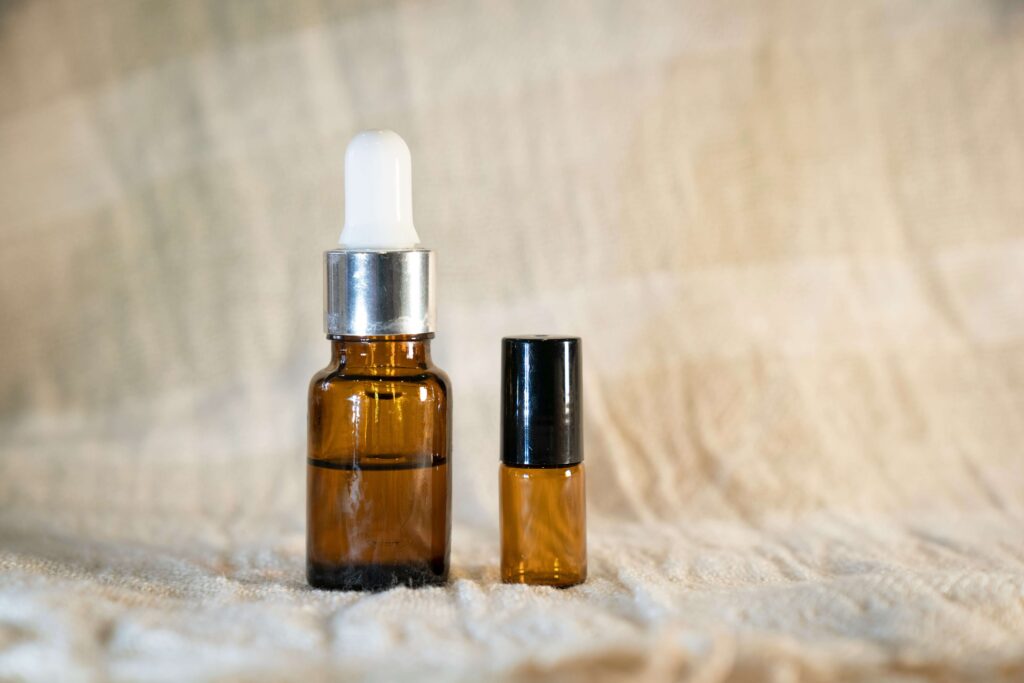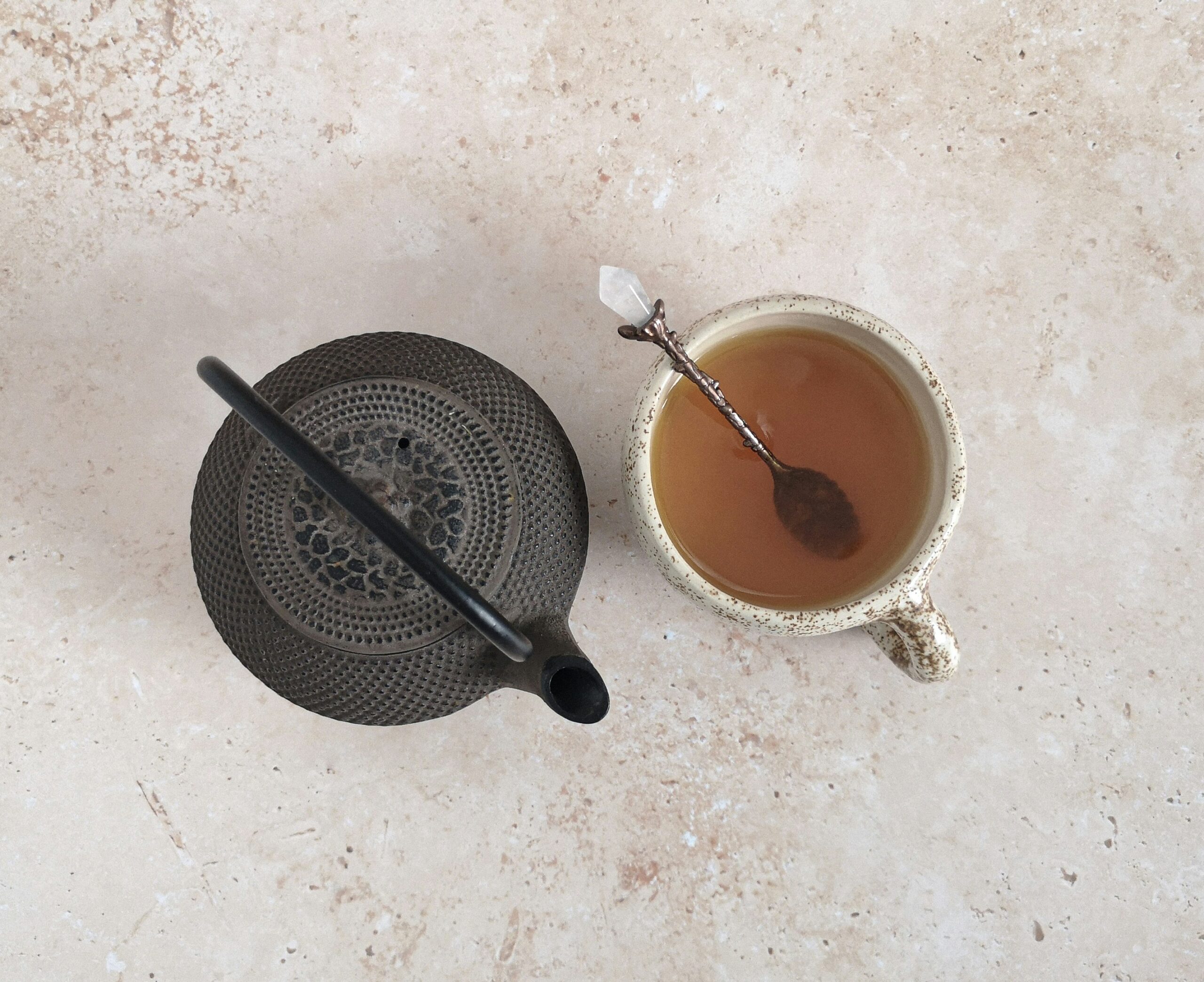
Essential Oil for Pregnancy Nausea, help! Nausea during pregnancy can be challenging, and many are looking for natural remedies. Essential oils, especially when used in aromatherapy, offer a promising solution. Peppermint and lemon essential oils are popular choices for easing pregnancy nausea. Studies have shown that inhaling these oils can reduce the intensity of nausea and vomiting.
One study found that mixed essential oils effectively reduce nausea in early pregnancy. Peppermint oil is known for its cooling and calming properties, making it a favourite among pregnant women. Meanwhile, lemon oil provides a refreshing scent that can uplift your mood and ease queasiness.
When using essential oils, safety is paramount. Always ensure you are using high-quality oils and consult with a healthcare provider before starting any new remedy. Integrating essential oils into your wellness plan can offer relief from nausea and provide additional emotional and physical benefits during pregnancy.
Key Takeaways
- Essential oils like peppermint and lemon can ease pregnancy nausea.
- Consult with healthcare providers to safely use essential oils.
- High-quality oils and proper usage are crucial for safe aromatherapy.
RELATED: Anti Nausea Candy for Pregnancy: Alleviating Morning Sickness Naturally
RELATED: Natural Remedies for Anxiety During Pregnancy: Safe and Effective Solutions
RELATED: Acupuncture for Pregnancy Nausea: Effective Relief Options
Understanding Aromatherapy and Essential Oils
Aromatherapy involves using essential oils from various plants for their therapeutic benefits. It’s important to know how these oils are extracted and how they work on the body.
Foundations of Aromatherapy
Aromatherapy is the practice of using essential oils to promote physical and emotional well-being. It taps into the power of scents to influence your mood and health. In this practice, essential oils are often diffused into the air or applied to the skin. Inhalation can directly affect your sense of smell, which is closely tied to your brain’s emotional centres.
Aromatherapy has roots in ancient cultures. Egyptians and Greeks used essential oils for medicinal and cosmetic purposes. The practice has evolved, yet its core remains the same. It aims to improve your quality of life through natural scents and properties.
Types and Extraction of Essential Oils
Essential oils come from various parts of plants, including flowers, leaves, and roots. The most common extraction methods are steam distillation and cold pressing. For example, lavender and peppermint are obtained through steam distillation. Citrus oils often use cold pressing.
Steam distillation involves passing steam through plant material to release oils. Cold pressing, typically used for citrus oils, mechanically presses the plant material to extract the oil. Once extracted, these oils are highly concentrated. Small amounts are enough to produce significant benefits.
Popular essential oils include lavender, known for its calming effects, and peppermint, often used to relieve headaches. Each oil has unique properties and uses, so it’s important to choose the right one for your needs.
How Essential Oils Interact with the Body
When you inhale essential oils, the scent molecules are absorbed through your nasal passages. They interact with your olfactory system and can impact your mood and stress levels. Lavender, for example, can help reduce anxiety when inhaled.
Topical application involves applying oils directly to the skin. The oils are absorbed through your skin and enter your bloodstream. They can then provide targeted benefits, like reducing nausea or easing muscle pain.
Safety is crucial when using essential oils. Always dilute them with a carrier oil to prevent irritation. Never ingest essential oils unless under professional guidance as they can be toxic if not properly used.
Safety of Essential Oils During Pregnancy
Using essential oils during pregnancy requires careful consideration. Certain oils are safe and beneficial, while others should be avoided. It’s crucial to understand how to use these oils safely and recognise which ones could be harmful.

Safe Practices for Pregnant Women
During pregnancy, it’s important to be cautious with essential oils. Always dilute essential oils with a carrier oil before applying them to the skin. Inhalation is often the safest method, as it reduces the risk of skin irritation.
Consult your healthcare provider before using any essential oil. Pregnant women should avoid using oils in the first trimester. Some essential oils, like peppermint, can be beneficial for easing nausea, but make sure it’s approved by your doctor.
Monitor yourself for any signs of an allergic reaction, such as rash or difficulty breathing. Patch-test oils on a small area of skin first. If you experience any adverse effects, stop using the oil immediately and contact your healthcare provider.
Unsafe Essential Oils to Avoid
Some essential oils are unsafe during pregnancy and should be avoided. Avoid oils such as clary sage, which can induce contractions. Juniper Berry and Basil might be harmful to the fetus.
Cinnamon oil and clove oil can irritate the skin and should also be avoided during pregnancy. Essential oils like tea tree oil have been linked to hormone disruption and may pose risks.
Always avoid ingesting essential oils, as this can lead to complications for both you and the fetus. Stay informed about which oils are safe and consult your healthcare provider to ensure you’re making the best choices for your health and the health of your baby.
The Best Essential Oils for Pregnancy Nausea
Certain essential oils like ginger, peppermint, and lavender are known to help with pregnancy nausea. These oils can provide relief from symptoms, promote relaxation, and aid sleep.
Ginger Oil and Morning Sickness Relief
Ginger oil is reputed for its role in easing morning sickness. It is known for its warming properties, which can soothe the stomach and reduce nausea. Using ginger oil in a diffuser or as part of a massage oil could help you when you feel nauseous.
Research suggests that ginger oil is effective in diminishing the intensity of morning sickness. This makes it a popular choice among pregnant women. It’s also useful for other digestive issues, providing a comprehensive natural remedy for stomach discomfort.
Peppermint Oil’s Anti-Nausea Properties
Peppermint oil is another effective remedy for nausea during pregnancy. The cooling effect of peppermint can ease your digestion and reduce feelings of nausea. It is especially helpful when inhaled through a diffuser.
Studies show that peppermint oil can significantly lower the severity of nausea and vomiting. It works quickly to provide relief, making it a convenient option. Be sure to use it in moderation and talk to your healthcare provider before incorporating it extensively.
Lavender Oil for Relaxation and Sleep
Lavender oil is renowned for its calming properties. Besides reducing nausea, it can help you relax and improve sleep. A restful sleep can indirectly alleviate nausea by reducing stress and anxiety.
Using lavender oil in your bedtime routine can create a more peaceful environment. Whether through a diffuser or by adding a few drops to your pillow, lavender can help you enjoy restful nights and ease any nausea you experience.
How to Use Essential Oils for Nausea
Essential oils can be used in several ways to help manage nausea during pregnancy. Each method has its own benefits and guidelines for safe use.
Topical Application and Dilution Guidance
When using essential oils topically, it’s essential to dilute them with a carrier oil like jojoba or almond oil. This helps prevent skin irritation and ensures the oils are safely absorbed into your skin.
Steps:
- Mix a few drops of essential oil with a tablespoon of carrier oil.
- Apply the mixture to your wrists, neck, or the soles of your feet.
- Massage gently for better absorption.
Try using lavender or peppermint oils, as they are known to help with nausea and relaxation.
Inhalation Methods
Inhaling essential oils is another effective way to alleviate nausea. This method works quickly and is easy to do almost anywhere.
Steps:
- Add a few drops of essential oil to a tissue or cotton ball.
- Hold it close to your nose and inhale deeply for a few minutes.
Alternatively, you can use an aromatherapy inhaler. Lemon and peppermint oils are popular choices for this method and can provide quick relief from nausea.
Creating a Serene Space with Diffusers
Using a diffuser to disperse essential oils into the air can create a calming environment that may help reduce nausea symptoms.
Steps:
- Fill your diffuser with water according to the manufacturer’s instructions.
- Add a few drops of peppermint or lavender oil.
- Turn on the diffuser and enjoy the aromatic mist.
A diffuser can run for several hours, making it an excellent way to maintain a serene space throughout the day. This method not only helps with nausea but also promotes overall relaxation and well-being.
Secondary Benefits of Essential Oils During Pregnancy
Using essential oils during pregnancy can provide benefits beyond relieving nausea. These include reducing stress and anxiety, as well as alleviating muscle aches and headaches.
Stress and Anxiety Reduction
Essential oils like lavender, chamomile, and bergamot are known for their calming properties. These oils can help lower stress and anxiety levels, which are common during pregnancy. Lavender oil, in particular, has been shown to promote relaxation and improve sleep quality.
Using a diffuser, adding a few drops to a bath, or applying diluted oils to your skin can be effective ways to experience these benefits. Aromatherapy can create a soothing environment, helping you manage the emotional ups and downs that pregnancy can bring.
Alleviating Muscle Aches and Headaches
Eucalyptus and peppermint oils are effective for relieving muscle aches and headaches. These oils have anti-inflammatory properties that can help reduce discomfort. You can massage diluted essential oils into sore muscles or use a cold compress with a few drops to reduce headache pain.
Pregnancy often comes with physical discomfort, and these essential oils can provide natural relief. By incorporating essential oils into your routine, you may find it easier to manage the physical challenges of pregnancy.
Expert Opinions on Essential Oil Use
Essential oils are increasingly used to help manage pregnancy nausea, but opinions vary among healthcare professionals about their safety and effectiveness.
What Healthcare Professionals Say
Healthcare providers stress the importance of using essential oils safely. Some doctors suggest that certain oils, like peppermint and ginger, can help reduce nausea. These recommendations come from both clinical research and patient feedback.
FDA guidelines note that essential oils should be used with caution. They are not heavily regulated for safety and quality, which is why seeking advice from a healthcare professional is crucial.
Research indicates that while essential oils may offer relief, it’s vital to follow specific guidelines. This includes avoiding certain oils and only using those that are deemed safe for pregnancy. Always consult with your doctor before starting any new treatment. This ensures you’re using high-quality products and addressing any potential risks.
For more on essential oils and their uses, you can explore this study.
Essential Oil for Pregnancy Nausea and Potential Risks and Side Effects
Using essential oils for pregnancy nausea can be effective, but it’s essential to be aware of potential risks. It’s crucial to be mindful of allergic reactions and the risk of preterm labour when using these oils.
Understanding Allergic Reactions
Essential oils can sometimes cause allergic reactions. Symptoms can include skin irritation, redness, itching, or swelling. To minimise the risk, always perform a patch test before using any essential oil. Apply a small amount of the oil diluted in a carrier oil to a small area of skin, like your inner forearm. If no reaction occurs within 24 hours, it is generally safe to use.
Common Allergens:
- Lavender
- Peppermint
- Tea Tree
If you experience any allergic symptoms, discontinue use immediately and consult your healthcare provider.
Avoiding Preterm Labour Risks
Some essential oils can stimulate uterine contractions, which may increase the risk of preterm labour. Oils like clary sage and basil should be avoided during pregnancy, especially in the first trimester. Always consult your doctor before using any essential oil.
Oils to Avoid:
- Clary Sage
- Basil
- Rosemary
Being aware of these risks can help you use essential oils safely and effectively. Always prioritise your safety and the health of your baby by consulting healthcare professionals and performing patch tests.
Integrating Aromatherapy into Your Pregnancy Wellness Plan
Aromatherapy can be a helpful addition to managing pregnancy nausea. It complements traditional treatments and offers a natural way to enhance your well-being.
Complementary Practices and Alternative Therapies
You can pair aromatherapy with other wellness practices for better results. For example, essential oils like lavender can promote relaxation, which may improve your sleep. Use a diffuser to spread the scent in your room or add a few drops to a warm bath.
Certain alternative therapies like acupuncture or meditation can also work well alongside aromatherapy. These methods can help reduce stress and improve your overall sense of wellness. When combined, they can make dealing with pregnancy nausea more manageable.
Always consult your doctor before trying new treatments, especially during pregnancy. They can help you choose safe options that complement any medications or hospital care you might need.
Quality and Storage of Essential Oils
When using essential oils, particularly during pregnancy to alleviate nausea, ensuring their quality and proper storage is crucial. Only high-quality, correctly stored oils can provide the best health benefits and maintain their safety and efficacy.
Selecting High-Quality Oils
Choosing high-quality essential oils starts with checking the purity and composition. Pure essential oils are free from additives or synthetic components. Look for labels that specify 100% pure essential oil. The botanical name should be included, signalling that no substitutes or generic blends are used.
Assessing the oil’s origin is also important. Oils sourced from plants grown in their native environment often have better quality. Brands that provide third-party testing or certificates of analysis guarantee transparency. These reports detail the oil’s composition and assure you of its purity and quality.
Finally, opt for brands with good reputations and positive customer reviews. Trusted brands are more likely to offer oils that meet stringent quality standards.
Proper Storage to Maintain Efficacy
Storing essential oils properly ensures they retain their potency and effectiveness. Always keep essential oils in dark glass bottles, such as amber or cobalt blue. These bottles protect the oil from light exposure, which can degrade its quality over time.
Temperature control is key. Store oils in a cool, dry place away from direct sunlight and heat sources. Excessive heat can alter the oil’s chemical composition, affecting its efficacy. A cupboard or drawer is ideal.
Make sure lids are tightly sealed to prevent oxidation. Exposure to air can lead to the oils becoming rancid or losing their beneficial properties. Following these storage guidelines will help maintain the oils’ health benefits and safety for use.
Navigating Emotional and Physical Changes with Essential Oils
Essential oils can offer support for both emotional and physical symptoms during pregnancy. A few specific oils can help with stress, anxiety, muscle aches, and nausea.
Emotional Support through Scent
Aromatherapy is useful for managing stress and anxiety you may feel during pregnancy. Lavender oil is known for its calming properties. When inhaled, it can help reduce anxiety and improve sleep quality. The effect of essential oils on the brain can make you feel more relaxed.
Peppermint oil is another option. It can uplift your mood and improve mental clarity, helping to combat depression and stress. Inhaling peppermint oil could offer the emotional balance you need.
Physical Changes and Essential Oil Relief
Nausea is a common pregnancy symptom. Lemon oil has been shown to reduce nausea and vomiting when inhaled. This can provide quick relief without the need for medication.
Peppermint oil not only supports mental health but can also relieve physical symptoms. You can use it to ease headaches and muscle aches. Applying diluted peppermint oil to your temples or sore muscles might bring relief.
Inhaling these essential oils can alleviate multiple pregnancy symptoms. Always ensure you use oils properly and consult with your healthcare provider for personalised advice.



Propuesta para Livedinwellness.
Hola, es un placer saludarte.
Te escribo porque sería interesante comentar contigo la opción de que Livedinwellness posicione en los primeros lugares de internet y que aparezca cada mes como noticia en cientos de periódicos digitales, con artículos reales dentro del periódico que no se marcan como publicidad y que no se borran.
Estas noticias se publicarán en más de cuarenta periódicos de gran autoridad para mejorar el posicionamiento de tu web y la reputación.
¿Podrías facilitarme un teléfono para aplicarte un mes gratuito?
Muchas gracias.